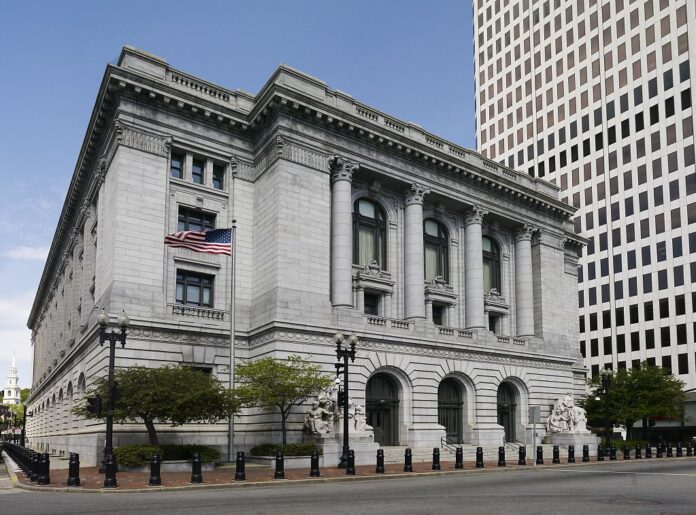
President Donald Trump cannot freeze money that Congress has already decided should be spent, according to a federal judge in an opinion handed down on March 6. The ruling extends his temporary restraining order on the administration’s efforts to freeze billions of dollars in congressionally approved funds to 22 states and Washington, D.C.
“The interaction of the three co-equal branches of government is an intricate, delicate and sophisticated balance — but it is crucial to our form of constitutional governance. Here, the Executive put itself above Congress,” wrote Judge John J. McConnell, Jr. of the Federal District Court for the District of Rhode Island.
The Trump administration is now forbidden from “reissuing, adopting, implementing, giving effect to, or reinstating under a different name” a directive first outlined in a Jan. 27 memo from the White House Office of Management and Budget which instructed federal agencies to review funding programs to ensure they were following the president’s policies, freezing billions in federal funding in the process.
According to the judge, the president hasn’t provided any legal reason — either from the Constitution or from laws passed by Congress — that allows him to unilaterally freeze government spending. And the government, McConnell said, has only offered vague assurances the freeze would end eventually, once agencies completed reviews of their budgets to confirm spending was aligned with the president’s goals.
McConnell said the Trump administration “imposed a categorical mandate on the spending of congressionally appropriated and obligated funds without regard to Congress’s authority to control spending.”
“The Court is simply holding that the Executive’s discretion to impose its own policy preferences on appropriated funds can be exercised only if it is authorized by the congressionally approved appropriations statutes,” he wrote.
McConnell said the freeze has had grave consequences for federally funded grant programs that support childcare, child welfare services and early childhood services, state and local law enforcement agencies and vital healthcare provided through federally funded Medicaid programs, as well as federal funding for emergency management and preparedness.
“Without injunctive relief to pause the categorical freeze, the funding that the States are due and owed creates an indefinite limbo,” he wrote.
Impact on agriculture
Millions of dollars for federal assistance programs administered by the U.S. Department of Agriculture, including climate and equity-related grants promised to farmers, are at stake, with many farmers and the organizations that represent them still waiting for word on whether they will receive the promised reimbursements and vital funding they depend on.
That’s the reality for Pasa Sustainable Agriculture, a Pennsylvania-based farmer group that provides technical assistance and financial support to help farmers adopt regenerative practices like agroforestry, cover cropping and low tillage to improve soil health, water quality and climate resilience, with more than 95% of the organization’s funding going to direct support for farmers. Executive Director Hannah Smith-Brubaker announced on March 5 that they will be instituting a phased furlough of most employees, affecting 60 of its 70 staff members as of April 1.
“Our USDA funding has now been frozen for more than 40 days — that means 40 days of dipping into reserve funds, which, while they are intended to see us through moments like this, are not intended to carry us forward indefinitely,” she wrote in an update shared to members.
According to a Pasa spokesperson, the length of the furlough depends on the status of the federal funding freeze and the availability of funding from other sources, including support from private foundations and individual donors.
Meanwhile, a new report detailing the impact of the funding freeze on conservation districts and the communities they serve was published by the National Association of Conservation Districts on March 4.
According to the report, a large number of producers who invested tens of thousands of dollars in cost-share contracts and practices are still waiting to be paid. According to the report, this delay has put some of them in dire financial straits, leaving them dependent on interest-bearing credit lines as they struggle to make ends meet waiting for USDA to pay them.
Additionally, the report found that the consequences of the funding restriction extend beyond individual producers. According to the poll, state, tribal and local governments are under pressure to postpone plans for wildfire mitigation and recovery, watershed rehabilitation, culvert replacement and more.
“Among our members’ most pressing concerns is the erosion of trust in the locally led conservation delivery system,” the report said. “Producers make land management decisions well before the planting season begins. Recent actions have led to widespread confusion and uncertainty among producers, likely resulting in future reluctance to seek out federal programs and engage with conservation districts and other local partners.”









